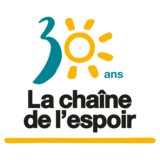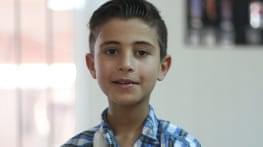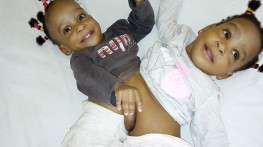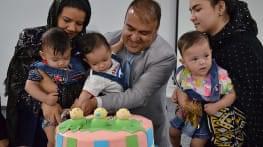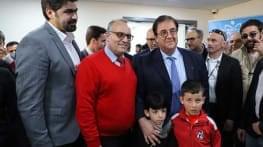Lebanon: 110 children operated on
More than 110 children operated on in Lebanon through our project financed by the Crisis and Support Centre created in partnership with URDA, the Sacré-Coeur Hospital of Beirut and the Shtoura Hospital in the Bekaa valley.
A very limited access to healthcare
Amira lives at Ozai (Saida) with her husband and their five children in an empty building sheltering 250 refugee families who have fled from war in Syria. Two of her children are ill: Mohammad, 6 years and a half, has syndactyly of both feet, which made him fall a lot. Ali, a year and a half, used to suffer from polydactyly of the foot. Amira explains: “I have knocked on every door of hospitals and associations to have my two sons operated on but nobody was able to help us. It is not only the malformation that affected us. It is the stigmatisation of adults and the mockery from children. It was difficult to accept the glance of the other mothers on my family”, she added.
Similar testimony from Ahmad, father of a two-year old little boy, Hassan, born with a congenital malformation of the foot and eight toes: “I went to several hospitals; they were all asking me between 3,000 and 4,000 dollars for the surgery. It was impossible for me to save such an amount of money. But it was my responsibility as head of the family and I could not fulfil it. I was ashamed”.
As these stories show, access to healthcare is still very unequal in Lebanon despite efforts made by the Ministry of Public Health. The cost of surgeries is the first obstacle for refugee populations excluded from the social security system. Due to insufficient international financing devoted to the Syrian crisis, UNHCR contributions only concern critical cases of secondary and tertiary health and do not include congenital malformations.
Furthermore, the quality of the surgeries performed on refugees and vulnerable people also sometimes raises questions. Moemena, 12 years old, had been operated twice for a congenital hip dislocation before our teams took care of her. Both surgeries failed and the last one made her suffer terribly.
“Today, I only wish that other children may be operated on”
Since April 2017, our partner URDA has multiplied identification campaigns and carried out consultations with more than 430 children. Many of them are referred to other competent departments, while more than 110 children have been operated on in our partner hospitals of Beirut Sacré-Coeur and Shtoura in the Bekaa valley by two excellent paediatric and orthopaedic surgeons, Dr Hassan Najdi and Dr Hamza Masloum,
During follow-up consultations organised on a regular basis with patients, results can already be seen. Mohammad, Ali and Ahmad, learn to walk again and Moemena does not suffer any longer. Amira, the mother of Mohammad and Ali explains: “We are very satisfied with the surgery. However, beyond the operation, it is the care and consideration we have received from the caregivers that have made all the difference. They took such good care of us. It helped us keep hope. It is a new life for my children.”
It is enough to stimulate vocations in pretty Moemena: “When I grow older, I want to study surgery to become like Dr Roger Jawish and Dr Hassan Najdi!”.
Between 1 and 1.5 million Syrian refugees, about 313,000 Palestinian refugees and 20,000 Iraqi refugees currently live in Lebanon out of 6 million inhabitants. Among the Lebanese population, 1.5 million people are considered “vulnerable”. According to the Ministry of Public Health, more than 2,000 children are born every year in Lebanon with congenital malformations, 26% of them affecting the musculoskeletal system.
This project is financed by the Crisis and Support Centre.
We dedicate this article and every of our actions in Lebanon to the memory of Dr Roger Jawish for his invaluable involvement in this project.
